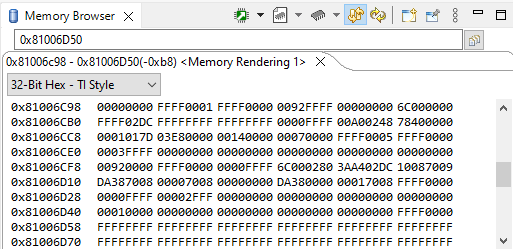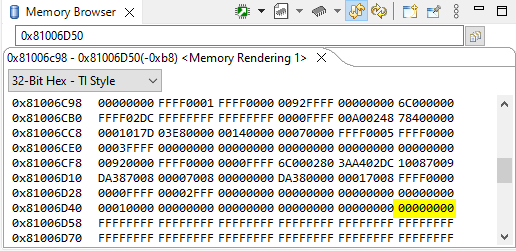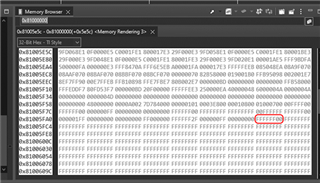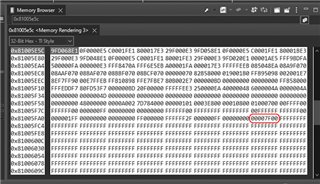Dear Sitara team,
I have a custom board with Sitara AM6442B.
I developed a javascript procedure that allows to save an application (builded in CCS 12.2) in the eMMC, using the scripting console
To do this, the executable is first copied into the DDR and then saved into the non-volatile memory (with a custom FW running in R5 core and executed with the same script)
To transfer the executable into the DDR I use the function dsCPU.memory.loadRaw(0, addr_DDR_image, path_image, 32, false)
Where:
- dsCPU = debugServer.openSession( ".*MAIN_Cortex_R5_0_0" )
- addr_DDR_image is the address in the DDR where I copy the FW (i.e. 0x81000000)
- path_image is the path of the file to upload (in .appimage.hs_fs format)
In some cases, loadRaw() returns this message
WARNING: MAIN_Cortex_R5_0_0: Unexpected end of file: [path_image].
Only [N] bytes are loaded from the file into the memory and the remaining bytes are set to zero.
I noticed that [N] is slightly different from the real file size
When this event happens, my bootloader is unable to run the application
Any suggestions?
Thanks






